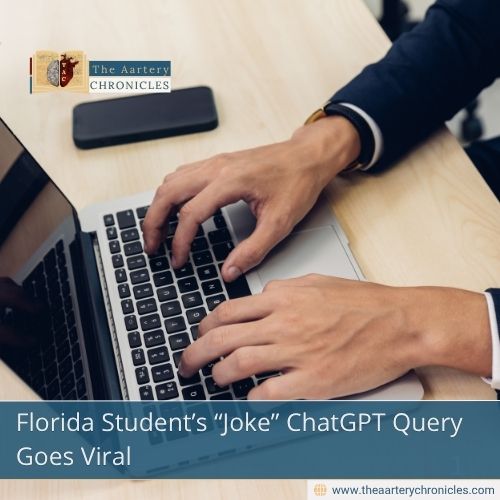

Florida Student’s “Joke” ChatGPT Query Goes Viral
In a recent Florida case, a student’s alarming ChatGPT search triggered a school safety alert, once again highlighting the growing link between AI and mental health among young people.
What Happened in the Florida School Incident
Authorities in Volusia County, Florida, responded quickly after a school’s monitoring system flagged a disturbing online message. A student reportedly used ChatGPT to ask, “How to kill my friend in the middle of class.”
The query was made on a school-issued laptop equipped with a digital safety platform called Gaggle, which automatically scans for potentially harmful or violent online behaviour. The system immediately alerted school officials, who then contacted law enforcement.
When questioned, the teen told officers he was “just joking” after being annoyed by a classmate. However, police emphasised that such remarks, even if meant as pranks, create serious emergencies and can have lasting consequences. The student was arrested and taken into custody, though details about the charges remain undisclosed.
Why Schools Use AI Surveillance Systems
The incident underscores how schools across the United States are increasingly using AI-based monitoring tools to detect early signs of danger. Following a decade of rising school violence and shootings, many states have invested heavily in digital surveillance technology to safeguard students.
Gaggle, one of the leading companies in this field, claims its software can identify warning signs related to self-harm, bullying, and violence by scanning online communications and browser activity, including chats with AI programs like ChatGPT or Google Gemini.
The Broader Issue: AI and Mental Health
Beyond school safety, this event also reignites discussions around AI and mental health. Experts note that while AI chatbots can offer educational and emotional support, they can also unintentionally worsen mental health struggles for some individuals.
In particular, researchers have raised concerns about a phenomenon called “AI psychosis,” where people experiencing mental distress may have their delusions or paranoia amplified through repeated, unfiltered interactions with chatbots. Several recent cases of self-harm and suicide have been linked to such interactions.
Why This Matters for Parents and Health Professionals
Mental health specialists urge parents, teachers, and healthcare providers to stay informed about how young people are using AI tools. Conversations around AI and mental health should include both the potential benefits, like tutoring or emotional support, and the risks, such as exposure to harmful ideas or misuse for violent or self-destructive purposes.
Parents are encouraged to discuss online safety and digital empathy with their children, emphasising that “joking” about violence online can have very real and serious consequences.
Conclusion
This Florida incident serves as a wake-up call about how AI and mental health intersect in today’s digital classrooms. As artificial intelligence becomes more integrated into daily life, understanding its psychological effects, especially on impressionable young minds, has never been more crucial.
Source: Inputs from various media Sources
I’m a pharmacist with a strong background in health sciences. I hold a BSc from Delhi University and a pharmacy degree from PDM University. I write articles and daily health news while interviewing doctors to bring you the latest insights. In my free time, you’ll find me at the gym or lost in a sci-fi novel.
- Priya Bairagi
- Health News and Updates,People Forum
- 7 October 2025
- 20:00








